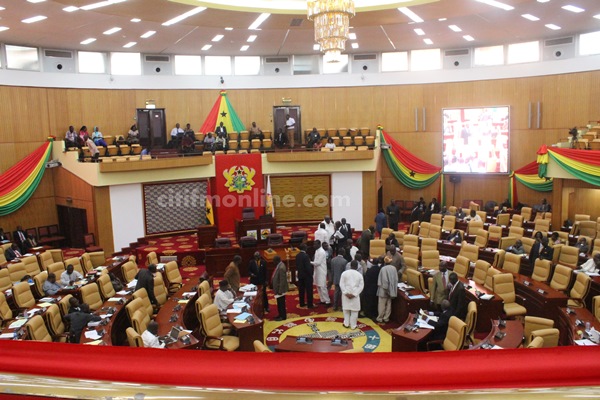Members of Parliament are set to approve a new set of international loan agreements despite concerns about the country’s ballooning debt stock.
The first is a financing agreement between the government of Ghana and the International Development Association (IDA) for an amount of $150 million.
[contextly_sidebar id=”yAOxIVkgLMfsDFaSYnwIpTOqSRX7HwlF”]This according to government is to help stabilise the economy “for competitiveness and growth development financing.”
The second one is an indemnity agreement with the IDA for a policy-based guarantee of $400 million in respect of the first macro-economic stability for competitiveness and growth development financing.
There is also a loan agreement between government of Ghana and the Africa Development Fund for an amount of $56.8 million which will be used to support public financial management and the Private Sector Competitiveness Support Programme phase 1.
The fourth is a loan agreement between government of Ghana and Kreditanstalt fur Wiederaufbau (KfW) in which an amount of 17,310, 000 Euros will be approved to help finance multi-donor budget support programme.
There is a financing agreement between the government of Ghana and the International Development Association (IDA) for an amount of $45 million to support the public financial management reform programme as well.
Then, there is a terms of a receivable-backed trade financing facility between the Ghana Cocoa Board (COCOBOD) and a consortium of banks and financial institutions in which the government of Ghana will serve as a guarantor for an amount of $1.8 billion.
This amount will be used for the purchase of cocoa beans in Ghana for the 2015/2016 crop season.
The House has however approved the credit facility agreement between the government of Ghana and the KBC bank of Brussels, Belgium for an amount of 3,457,253.47 Euros as supplementary funding for the Essakyir water supply system in the Central Region.
Currently, Ghana’s debt stock is about 70% to GDP and industry players have raised serious concerns about government’s inability to pay its debts; a situation they say is making investors lose confidence in the nation’s economy.
Some have also warned that Ghana could end up like Greece if it does not check its growing appetite for borrowing.
By: Efua Idan Osam/citifmonline.com/Ghana
Follow @ osamidan


